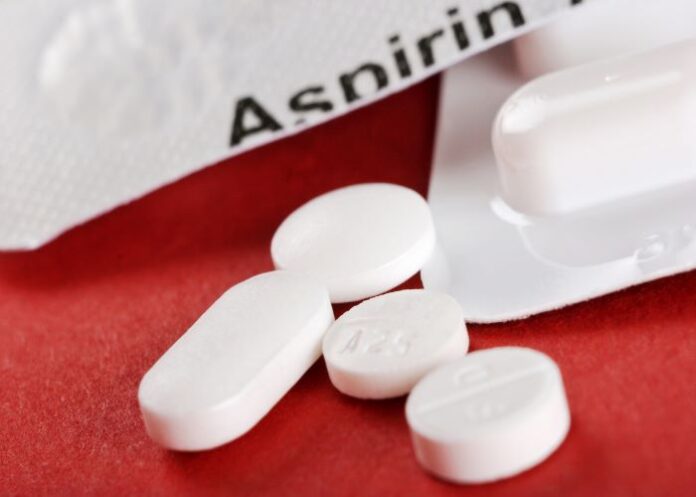A multi-centre trial of more than 12 000 orthopaedic trauma patients has shown that cheap aspirin was as effective as injectable blood thinners in preventing clots.
Patients with fractures typically receive an injectable blood thinner, low-molecular-weight heparin, to prevent life-threatening blood clots, but the latest findings, published in the New England Journal of Medicine, might lead surgeons to change their practice and administer aspirin to these patients.
The randomised clinical trial of more than 12 000 patients at 21 trauma centres in the US and Canada is the largest trial ever conducted on orthopaedic trauma patients. This multidisciplinary collaboration between orthopaedic surgeons and trauma surgeons points to the importance of evaluating techniques used to prevent post-surgical complications, like blood clots and infections, through high-quality, head-to-head comparison studies.
The trial was co-led by the Department of Orthopaedics at the University of Maryland School of Medicine (UMSOM) and the Major Extremity Trauma Research Consortium (METRC) based at the Johns Hopkins Bloomberg School of Public Health.
“Many patients with fractures might prefer to take a daily aspirin rather than daily injections, after we found that both have similar outcomes for prevention of the most serious outcomes from blood clots,” said the study’s principal investigator Dr Robert O’Toole, Hansjörg Wyss Medical Foundation Endowed professor in Orthopaedic Trauma at UMSOM and Chief of Orthopaedics at the R Adams Cowley Shock Trauma Center at the University of Maryland Medical Centre (UMMC).
“We expect our findings to have an important impact on clinical practice that may even alter the standard of care.”
Blood clots cause as many as 100 000 annual deaths in the US. Patients with fractures that require surgery are at increased risk of developing blood clots in the lungs and limbs. Large clots in the lungs even can be life-threatening.
Current guidelines recommend prescribing low-molecular-weight heparin (enoxaparin) to prevent these clots, although smaller clinical trials in total joint replacement surgery suggested a potential benefit of aspirin as a less-expensive, widely available option.
The study enrolled 12 211 patients with leg or arm fractures needing surgery, or pelvic fractures regardless of the treatment. Half were randomly assigned to receive 30mg of injectable low molecular-weight heparin twice daily. The other half received 81mg of aspirin twice daily. Patients were followed for 90 days to measure health outcomes from the two treatments.
The main finding of the study was that aspirin was “non-inferior”, or no worse than low molecular-weight heparin in preventing death from any cause – 47 patients in the aspirin group died, compared with 45 patients in the heparin group. For other important complications, the researchers also found no differences between the two groups in clots in the lungs (pulmonary embolisms).
The incidence of bleeding complications, infection, wound problems, and other adverse events from the treatments was also similar in both groups.
Of all the outcomes studied, the only potential difference noted was in blood clots in the legs, called deep vein thrombosis. This condition was relatively uncommon in both groups as it occurred in 2.5% of patients in the aspirin group, and in 1.7% of patients in the heparin group.
“This relatively small difference was driven by clots lower in the leg, thought to be of less clinical significance and often not requiring treatment,” said study co-principal investigator Dr Deborah Stein, Professor of Surgery at UMSOM and Director of Adult Critical Care Services at UMMC.
The trial was called PREVENTion of CLots in Orthopaedic Trauma, or PREVENT CLOT.
Study details
Aspirin or Low-Molecular-Weight Heparin for Thromboprophylaxis after a Fracture.
Major Extremity Trauma Research Consortium (METRC).
Published in the NEJM on 19 January 2023
Abstract
Background
Clinical guidelines recommend low-molecular-weight heparin for thromboprophylaxis in patients with fractures, but trials of its effectiveness as compared with aspirin are lacking.
In this pragmatic, multicentre, randomised, non-inferiority trial, we enrolled patients 18 years of age or older who had a fracture of an extremity (anywhere from hip to midfoot or shoulder to wrist) that had been treated operatively or who had any pelvic or acetabular fracture. Patients were randomly assigned to receive low-molecular-weight heparin (enoxaparin) at a dose of 30mg twice daily or aspirin at a dose of 81mg twice daily while they were in the hospital. After hospital discharge, the patients continued to receive thromboprophylaxis according to the clinical protocols of each hospital. The primary outcome was death from any cause at 90 days. Secondary outcomes were nonfatal pulmonary embolism, deep-vein thrombosis, and bleeding complications.
Results
A total of 12,211 patients were randomly assigned to receive aspirin (6101 patients) or low-molecular-weight heparin (6110 patients). Patients had a mean (±SD) age of 44.6±17.8 years, 0.7% had a history of venous thromboembolism, and 2.5% had a history of cancer. Patients received a mean of 8.8±10.6 in-hospital thromboprophylaxis doses and were prescribed a median 21-day supply of thromboprophylaxis at discharge. Death occurred in 47 patients (0.78%) in the aspirin group and in 45 patients (0.73%) in the low-molecular-weight–heparin group (difference, 0.05 percentage points; 96.2% confidence interval, −0.27 to 0.38; P<0.001 for a non-inferiority margin of 0.75 percentage points). Deep-vein thrombosis occurred in 2.51% of patients in the aspirin group and 1.71% in the low-molecular-weight–heparin group (difference, 0.80 percentage points; 95% CI, 0.28 to 1.31). The incidence of pulmonary embolism (1.49% in each group), bleeding complications, and other serious adverse events were similar in the two groups.
Conclusions
In patients with extremity fractures that had been treated operatively or with any pelvic or acetabular fracture, thromboprophylaxis with aspirin was non-inferior to low-molecular-weight heparin in preventing death and was associated with low incidences of deep-vein thrombosis and pulmonary embolism and low 90-day mortality.
See more from MedicalBrief archives:
Large trial produces ‘best evidence’ of aspirin benefits in reducing CVD risk
Aspirin use best for those with high coronary calcium, low risk of bleeding
Aspirin okay for brain bleed stroke patients – RESTART clinical trial
Stopping aspirin when on blood thinners cuts bleeding risk – Michigan study

